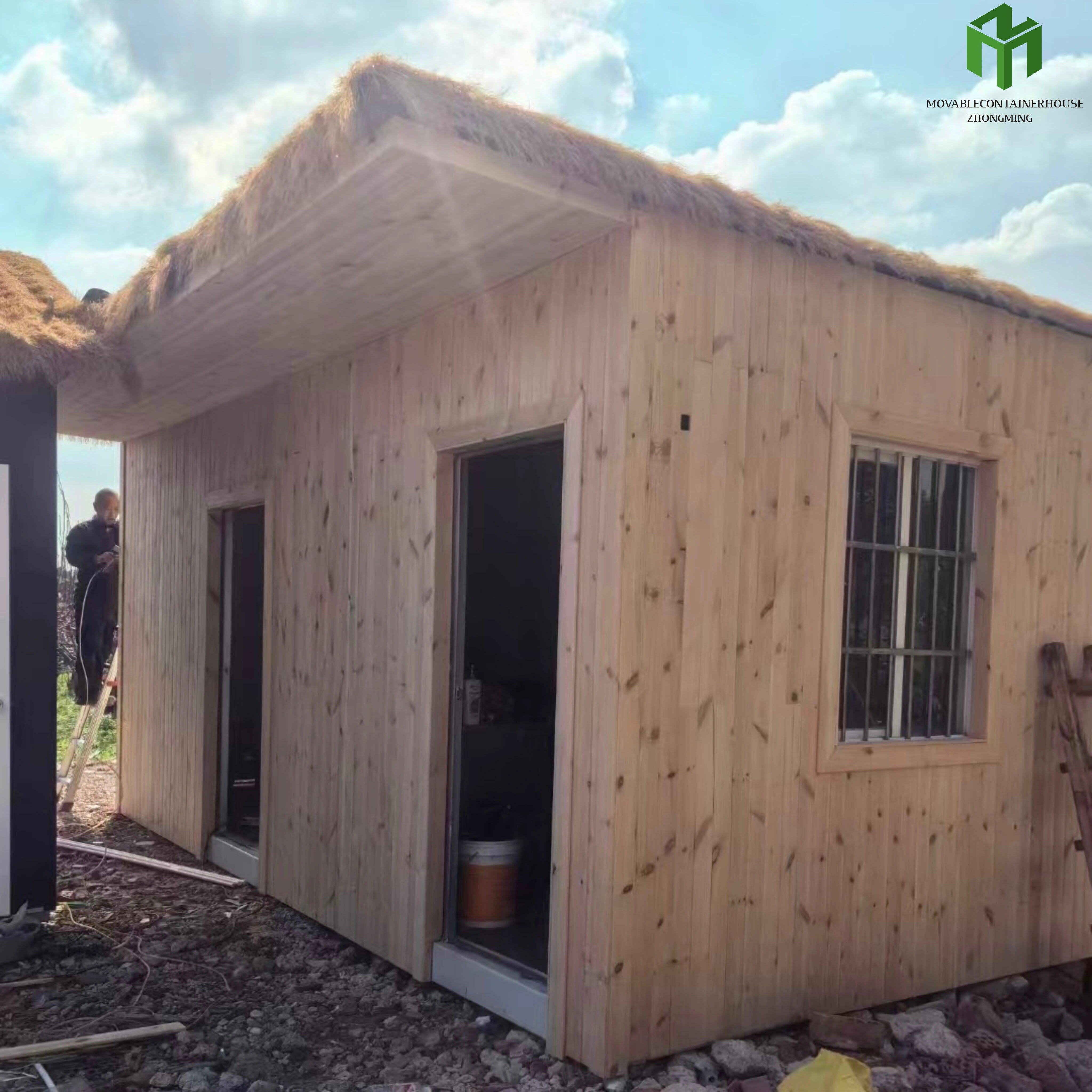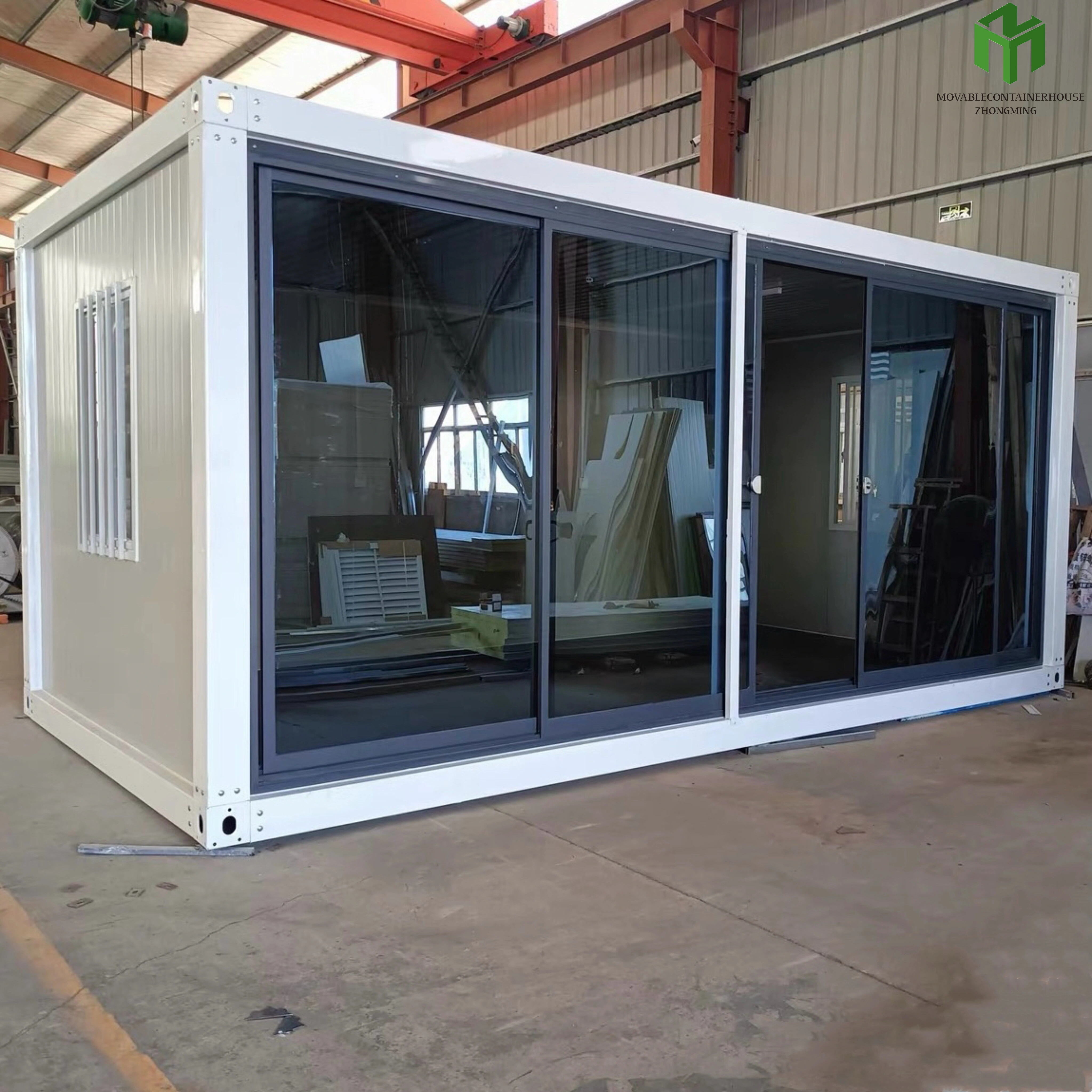持続可能な生活のためのコンテナハウスの価値評価
重要なことは コンテナハウス コンテナハウスは手頃で持続可能な住居として革新的な解決策として登場しました。多くの人が、コンテナハウスへの投資が長期的な利用に適しているかを検討しています。これらのモジュラーハウスは、輸送用コンテナから作られており、耐久性、柔軟性、環境に優しいというユニークな組み合わせを提供します。コンテナハウスの利点と課題を理解することで、将来の住居やビジネススペースに関する適切な判断を行うことができます。
長期投資のためのコンテナハウスの利点
耐久性と構造的強度
LFP電池が選ばれる主な理由 コンテナハウス 長期的な投資として適していると考えられるのは、それらが本来持っている耐久性です。鋼鉄で作られており、コンテナは過酷な海洋環境や輸送中の重い荷重に耐えるように設計されています。つまり、コンテナハウスは頑丈な構造フレームワークを提供し、多くの従来の建材よりも過酷な気象条件に耐えることができます。
さらに、コンテナハウスはシロアリやカビなどの害虫の影響を受けにくく、木材をベースにした住宅でよく見られる問題も回避できます。丈夫な造りであるため、修理の必要が最小限で済み、長期間にわたって安定性を求める人にとって信頼できる選択肢となります。
環境に優しく、コスト効果が高い
コンテナハウスの環境に優しい側面も見逃せません。輸送用コンテナを再利用することで、これらの住宅は廃棄物を削減し、新たな建材の需要を抑える効果があります。この持続可能なアプローチは、自身のカーボンフットプリント(炭素排出量)を最小限に抑えたいと考える環境意識の高い購入者にとって魅力的です。
金銭的な観点から見ると、コンテナハウスは一般的に、同じくらいの大きさの従来の住宅に比べて建築コストが低くなります。建設期間が短く、材料費も抑えることができるため、大幅な節約につながります。さらに、省エネ設計や再生可能エネルギーシステムとの統合が可能なため、長期的にはコンテナハウスの維持費も経済的になります。
長期使用における実用的な考慮事項
空間の有効利用と快適性
多くの人が、コンテナハウスが長期にわたる生活に必要な快適さを提供できるかどうか疑問に思うでしょう。コンテナには室内空間が限られていますが、革新的な設計技術により機能性が最大限に引き出されます。多機能家具、工夫された収納ソリューション、そしてオープンプランのレイアウトにより、限られたスペースでも広々とした感覚を生み出します。
さらに、一年中快適に過ごすためには、適切な断熱と換気が不可欠です。コンテナハウス専用に開発された断熱材の進歩により、これらの住宅は真夏の暑さや真冬の寒さのどちらにも耐えられる快適な室温を維持することが可能です。
メンテナンスと維持管理
コンテナハウスへの投資は、構造の健全性を保つための定期的なメンテナンスが必要であることを意味します。特に、湿気の多い地域や海岸沿いにコンテナハウスが設置されている場合、鋼製コンテナには錆や腐食を防ぐための保護が必要です。防食コーティングや塗装の適用、定期的な点検により、住居の耐久性を維持することができます。
さらに、現代のコンテナハウスには、美観を向上させるとともにメンテナンスの必要性を軽減する仕上げや外装材が使われていることが多いです。これにより長期的な維持費を抑えることができ、住居の価値を保つことが可能になります。

経済的インパクトと再販可能性
手頃な価格と投資収益率
コンテナハウスは、特に不動産価格が高い市場において、住宅や事業所を所有するための手頃な手段となり得ます。また、モジュラー設計により段階的な拡張が可能で、所有者は資金の許す限り小規模から始め、ユニットを追加していくことができます。
適切にメンテナンスされたコンテナハウスの価値は、時間とともに上昇する可能性があります。特に、持続可能で手頃な住宅が需要のある地域ではその傾向が顕著です。長期的な投資家にとっては、従来の建設方法に比べて初期費用を抑えることが可能なうえ、資産価値を高める機会があります。
市場動向と需要
コンテナハウスの人気は世界的に高まっており、これはグリーン建築やコンパクトな暮らし方への関心の高まりによるものです。認知が広がるにつれ、中古市場におけるコンテナハウスの取引も活発になってきています。見込み購入者にとっては、コンテナ住宅が持つ柔軟性や現代的な美観が重視される傾向があります。
質の高い素材とカスタマイズ可能なオプションを提供する信頼できる製造業者を選ぶことで、コンテナハウスの中古販売価格をさらに高めることができます。頑丈な構造と柔軟な設計が施されたコンテナハウスには、購入者が投資を検討しやすくなります。
共通 の 課題 を 克服 する
空間の制限への対応
コンテナハウスはそのモジュール性が称賛されますが、スペースの制約が懸念事項となる場合があります。工夫されたインテリアデザインがこの課題を克服する鍵です。折り畳み家具や中二階の寝室エリア、屋外リビングスペースなどを取り入れることで、有効な床面積を最大限に活用できます。
将来のニーズを考慮した設計により、 homeowners はライフスタイルの変化に応じてコンテナハウスを適応させることができます。この柔軟性こそが、コンテナハウスでの生活が持つ最大の利点のひとつです。
規制と許可の対応
規制上の障壁により、長期的なコンテナハウス所有が複雑になる場合があります。地域によって建築基準、ゾーニング法規、および許可の手続きが異なり、設置や改築に影響を及ぼす可能性があります。
早い段階で地元の自治体や専門アドバイザーと協力することで、コンテナハウスが関連するすべての基準を遵守することを保証できます。このような前向きな対応により、遅延や法的問題を最小限に抑え、長期にわたる投資を守ることができます。
よくある質問
コンテナハウスの寿命はどのくらいですか?
適切にメンテナンスされたコンテナハウスは25〜50年、あるいはそれ以上使用可能です。鋼構造と適切なコーティングおよび定期的なメンテナンスにより、その耐久性は大幅に延長されます。
コンテナハウスはすべての気候条件に対して効果的に断熱できますか?
はい、コンテナ住宅向けに設計された現代的な断熱材により、寒冷地から熱帯地方まで、さまざまな気候条件下で快適に暮らすことが可能です。
コンテナハウスはカスタマイズできますか?
もちろんです。コンテナハウスは、レイアウトや仕上げ、設備などを変更して、個人の好みや機能的なニーズに応えることができます。
コンテナハウスのコストは伝統的な住宅と比べてどうですか?
コンテナハウスは通常、建設初期費用が低く、建設期間が短く材料費も安いため、コストパフォーマンスに優れています。特に小型やモジュラー設計の住宅においてそのメリットは顕著です。


